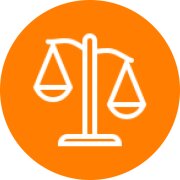Best Juvenile Law Lawyers in Kota Kinabalu
Share your needs with us, get contacted by law firms.
Free. Takes 2 min.
List of the best lawyers in Kota Kinabalu, Malaysia

About Juvenile Law in Kota Kinabalu, Malaysia
Juvenile Law in Kota Kinabalu, Malaysia, refers to the legal framework that addresses offenses committed by individuals who are under the age of majority. The Children Act 2001 is the main legislative document governing juvenile justice in Malaysia. This law aims to balance rehabilitation and accountability, offering a system tailored to the developmental needs of young offenders. The focus is on diverting juveniles from incarceration and providing supportive programs that facilitate behavioral change. Kota Kinabalu, as a significant urban center in Sabah, adheres to these national principles but may have localized practices and resources.
Why You May Need a Lawyer
There are several situations where individuals may seek legal advice in the field of Juvenile Law in Kota Kinabalu. These include instances where a minor is accused of committing a crime, where there are child custody disputes, or when juvenile rights are believed to have been violated. Lawyers play a crucial role in navigating the legal system, advocating for diminished penalties, and ensuring that the minor's rights are protected throughout the legal process. Seeking a lawyer ensures a knowledgeable approach to dealing with the juvenile justice system's complexities and nuances.
Local Laws Overview
Kota Kinabalu follows the national framework established by the Children Act 2001, which outlines numerous important aspects relevant to Juvenile Law. This includes defining a juvenile as any person under 18 years of age. The Act emphasizes rehabilitation over punishment, mandating that juveniles should not be incarcerated with adult offenders. Courts have the authority to appoint probation officers and require attendance in rehabilitation programs instead of detention. The Act also protects juveniles' privacy, dictating that all proceedings are conducted in a manner respecting their dignity and rights.
Frequently Asked Questions
What is considered a juvenile offense in Kota Kinabalu?
A juvenile offense is any act considered a crime if committed by an adult but performed by someone under 18. This can range from minor offenses like shoplifting to more serious ones such as assault.
What is the role of a lawyer in juvenile cases?
Lawyers act as advocates for the juvenile, ensuring their rights are protected and advising on the best course of action. They might negotiate with the prosecution for lesser charges or more lenient sentencing options focused on rehabilitation.
How are juvenile cases processed in the legal system?
Juvenile cases are typically handled in Magistrate's or Sessions Courts designated as Child Courts, which specialize in hearing these cases. The focus is on understanding the juvenile's context and directing them toward rehabilitation.
Are parents or legal guardians involved in the legal process?
Yes, parents or guardians are often involved in the juvenile's legal process. They typically accompany the juvenile during hearings and may be involved in any rehabilitation or restorative justice programs.
Can juveniles be incarcerated in adult facilities?
No, the law prohibits juveniles from being housed in adult detention facilities. Instead, they may be sent to special detention centers designed for young offenders.
What are the penalties for juvenile offenses?
Penalties can vary based on the severity of the offense, from counseling and community service to probation or placement in a state institution for more serious crimes.
How can a lawyer help in a juvenile delinquency case?
A lawyer can negotiate for reduced charges, seek alternatives to detention, and work for the juvenile's rights to be honored. They can also assist in sealing or expunging a juvenile's record when eligible.
What rights do juveniles have in legal proceedings?
Juveniles have the right to a fair trial, the right to legal representation, and the right to privacy. They must understand their charges and have access to educational opportunities while detained.
What happens if a juvenile is falsely accused?
If a juvenile is falsely accused, it is crucial to seek legal assistance immediately. A lawyer can work to gather evidence, provide an alibi, and clear the juvenile's name while ensuring proper legal procedure is followed.
How can rehabilitation be ensured for a juvenile offender?
Rehabilitation may include therapy, counseling, and educational programs. A legal representative can advocate for comprehensive programs that address the juvenile’s needs and promote long-term positive change.
Additional Resources
For those seeking legal advice or support, several resources can be tapped into:
- Local legal aid centers and NGOs offering pro bono services
- The Malaysian Bar Association for legal guidance
- The Department of Social Welfare in Sabah for rehabilitation programs
- Counseling and rehabilitation centers dedicated to youth correction
Next Steps
If you or a family member requires legal assistance in the field of Juvenile Law in Kota Kinabalu, consider reaching out to a specialized lawyer. It's important to act promptly to ensure all legal protections are applied and that the juvenile receives the necessary support. Contact local legal aid organizations for affordable services or seek referrals from community centers familiar with family and juvenile law cases. Speedy engagement with a lawyer can make a substantial difference in the case's outcome, ensuring all considerations align with the juvenile's best interests.
Lawzana helps you find the best lawyers and law firms in Kota Kinabalu through a curated and pre-screened list of qualified legal professionals. Our platform offers rankings and detailed profiles of attorneys and law firms, allowing you to compare based on practice areas, including Juvenile Law, experience, and client feedback.
Each profile includes a description of the firm's areas of practice, client reviews, team members and partners, year of establishment, spoken languages, office locations, contact information, social media presence, and any published articles or resources. Most firms on our platform speak English and are experienced in both local and international legal matters.
Get a quote from top-rated law firms in Kota Kinabalu, Malaysia — quickly, securely, and without unnecessary hassle.
Disclaimer:
The information provided on this page is for general informational purposes only and does not constitute legal advice. While we strive to ensure the accuracy and relevance of the content, legal information may change over time, and interpretations of the law can vary. You should always consult with a qualified legal professional for advice specific to your situation.
We disclaim all liability for actions taken or not taken based on the content of this page. If you believe any information is incorrect or outdated, please contact us, and we will review and update it where appropriate.










